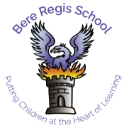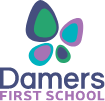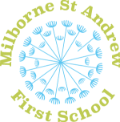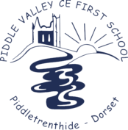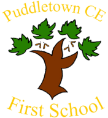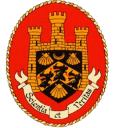
Personal Development (PSHE)

Personal Development Curriculum:
Personal, Social, Health and Economic education is a subject which is delivered through our Personal Development programme across all years at The Purbeck School. The Personal Development programme prepares students for life outside of school, equipping them with the skills to make positive and carefully considered life choices both now and in the future.
The Ofsted report stated that students at The Purbeck School “gain a good understanding of how to stay healthy through the curriculum, particularly in science and in personal, social and health education”. If you ask the students at The Purbeck School about Personal, Social and Health Education, they get genuinely excited, “You get to express yourself without judgement” one student remarked. “You can share how you feel and think about things and discuss and learn about the types of things we will come across when we are older, the things we don’t learn in other lessons”.
Rationale and ambition for the Personal Development Curriculum:
The Personal Development programme aims to deliver a curriculum which is accessible to all students and ensures that each of our students understands how to play a positive and successful role within society. It provides students with a deeper knowledge of the world, both locally and globally, giving them the confidence and belief to face a range of issues as they grow.
The Personal Development programme removes barriers to learning experienced by students, improving their capacity to succeed. The curriculum significantly contributes to students’ spiritual, moral, social and cultural development, behaviour, safety and their own well-being. The programme also develops students with further education on careers, linked to Gatsby Benchmarks.
The Personal Development programme works closely with all stakeholders including parents and employers; this cooperative approach ensures students at The Purbeck School have a 360 support package both in school and at home.
How is Personal Development taught?
Personal Development is delivered by tutors through a dedicated Personal Development lesson every cycle; the themes and topics are then further embedded through the assembly and tutor programme.
Students are assessed through yearly exercise books, allowing them to reflect on their overall performance and commitment to society.
How do we assess pupils through Personal Development?
- At all key stages formative assessment is used within and throughout each Personal Development lesson.
- Starter quizzes are designed to be used to check that students remember taught knowledge, reinforce taught knowledge and also allow teachers to address misconceptions.
- Student focus groups are also organised to assess students’ level of understanding of core content learnt and the moral purpose behind learning this content
Key Concepts:
The concepts that The Personal Development curriculum aims to support student progression in are:
- Relationships Education: To give young people the information they need to help them develop healthy, nurturing relationships of all kinds, not just intimate relationships. Students should know what a healthy relationship looks like and what makes a good friend, and a successful marriage or other type of committed relationship.
- Sex Education: An understanding of contraception, developing intimate relationships and resisting pressure to have sex (and not applying pressure). An understanding of what is acceptable and unacceptable behaviour in relationships. This will help pupils understand the positive effects that good relationships have on their mental wellbeing, identify when relationships are not right and understand how such situations can be managed.
- Physical health and Mental wellbeing: Students to understand how their bodies are changing and to understand how they are feeling and why. Pupils to understand the physical and emotional changes, which take place at this time and their impact on their wider health and wellbeing. Students to understand how to protect their own health and wellbeing and that their own hobbies, interests and participation in communities can support their overall wellbeing.
- Safety of themselves and others: Understand of the law involving young people and how these laws are designed to keep themselves and others safe. Understanding the steps to take to keep themselves and others safe when online and in the wider community
- Spiritual, Social and Moral Development: Students will understand the importance and apply the British Values of Democracy, Tolerance, Mutual Respect, Rule of law & liberty both within school and the wider community.
- Careers: students to explore the world of work and post 16 / 18 options. Develop an understanding of the skills needed for future careers and how these skills are developed throughout secondary school.
How do we work with external agencies and companies?
We pride ourselves on the extensive programme of outside speakers and companies who visit our school. Below is an overview of who we worked with throughout the academic year 2022-2023.
The Amy Winehouse Foundation, The OddBalls Foundation, MyTime Young Carers, RNLI, Street Doctors, Dorset Armed Response Team, Bold Voices, South Universities Network, The British Army, Bath University.
The order in which topics are delivered may be subject to change in response to both school and local trends
Long Term Overview
Letters to Parents July Activity Days
Letters to Parents
Letters sent to parents regarding The Purbeck School's Personal Development programme recently:
- Spring Term 25
- Autumn Term 24 – Years 7,8,9
- Autumn Term 24 – Years 10 / 11
- Summer Term
- Spring Letter 2024
- E-Safety Campaign Week
- Assembly Plan 2023-2024
- Autumn Letter 2023
- Personal Development Plan Introduction Letter
- Summer Letter 2023
- Spring Letter 2023
- Autumn Letter 2022
- Mentor Training: Bold Voices
- Show Racism the Red Card
Useful links:
Personal Development curriculum map
YEAR
| AUTUMN 1 | AUTUMN 2 | SPRING 1 | SPRING 2 | SUMMER 1 | SUMMER 2 | |
|---|---|---|---|---|---|---|
| 7 | Understanding emotions | Families & relationships | Physical health | Respectful relationships | Healthy choices | Life skills |
| 8 | Legal & illegal drugs | Identity & Discrimination | Health & wellbeing | Online safety | Sex & relationships | Consent |
| 9 | Peer influence and substance use | Managing relationships | Physical & Mental Health | Social Media vs Reality | Consent | Careers |
| 10 | Signs & effects of drugs used | Careers | Identity & relationships | Exploring influence | Equality | Work experience |
| 11 | Managing stress | Sexual harassment & violence | Financial management | Life skills | Preparation for GCSEs | Preparation for GCSEs |


